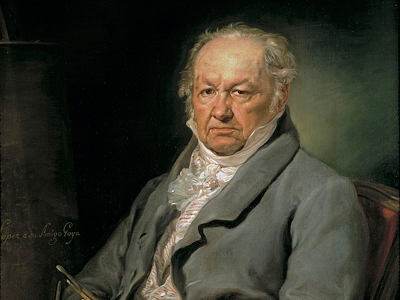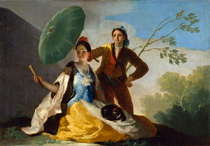

Painter - Francisco Goya
Born on the 30th of March 1746 in Fuendetodos, Aragon, Francisco José de Goya y Lucientes is seen as the last of the Old Masters. He began to study art at the age of 14, but his career did not kick off until 1771 when he received his first commission. Within four years Goya was working for the Spanish Royal Family.
His career continued to blossom until the 1790s when an unknown illness caused his deafness. His malady, the Napoleonic wars, and the death of his wife, all had an effect on the artist and much of his later work has a dark theme. He kept these works out of public view for the most part, and continued to paint lighter themed commissioned portraits.
Goya left Spain for Bordeaux in 1824 and it was here that he died of a stroke in 1828 at the age of 82.
There is doubt amongst some art historians as to whether or not this painting was done by Goya, although most accept that it was. Rosario, the daughter of Leocadia Weiss (and possibly of Goya himself) was a student to the artist and some claim that it may be a work of hers, although the quality of this piece is superior to any of her known works
Ready for more?
not all...
quizzers. Try to win a coveted spot on our Hall of Fame Page.

















Goya did not win the competition in which this piece was entered, although he did receive some encouraging praise from the judges